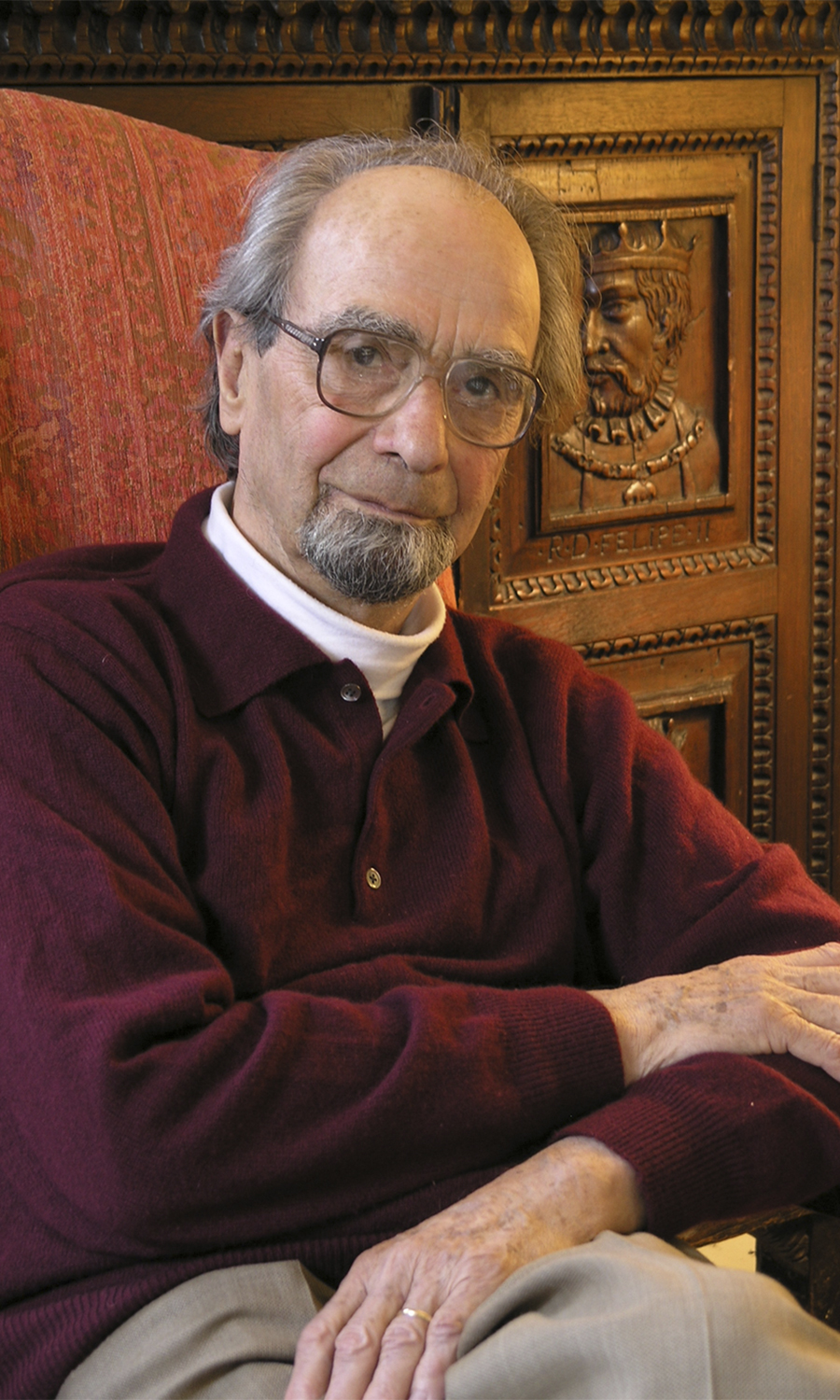Juan Orrego-Salas (1919-2019) was one of the most important figures in the history of contemporary Latin American music. He contributed as a musician to diverse areas of music, especially as a composer and musicologist. He has worked extensively in both scholarly and administrative fields, serving as one of the founders of the Escuela Moderna de Música, creator and first director of the music department of the Universidad Católica de Chile, and founder of the Latin American Music Center of Indiana University in the United States.
Orrego-Salas was born in Santiago, Chile, in January 1919. He began his initial education and training as a musician in his native city, later studying and obtaining his diploma in architecture in 1943. By that time he had completed his undergraduate work in composition with Pedro Humberto Allende and Domingo Santa Cruz, and was teaching history and literature of music at the Universidad de Chile and conducting the Universidad Católica de Chile, which he established in 1938. In 1944 he abandoned his work as an architect to dedicate his time fully to music.
This period in his life started with a two year residence in the United States, first as a Rockefeller Foundation grantee and later as a Guggenheim Foundation Fellow. He studied composition with Aaron Copland in Tanglewood and at the universities of Virginia and Princeton with Randall Thompson, as well as musicology with Paul Henry Lang and Georg Herzog at Columbia University.
In 1947 he returned to his home country as full music faculty professor of the Universidad de Chile and as choral conductor at the Universidad Católica. In 1949 he traveled to Europe as a guest of the British Council and the French and Italian governments. On this tour he conducted the world première performance of his Canciones castellanas, Op. 20, selected for the XXIII Festival of the International Society of Contemporary Music (ISCM) held in Palermo and Taormina, Sicily. Upon his return from Europe he accepted the editorship of the Revista Musical Chilena and in 1950 became the music critic of El mercurio, Chile's leading morning paper. An uninterrupted dedication to composition resulted in continuous performances of his works in Chile and abroad; he received many commissions to write compositions for orchestra and a variety of chamber ensembles.
In 1953 the Universidad de Chile conferred upon him the title of Profesor Extraordinario (Distinguished Professor) of composition, and the following year he returned to the United States and spent a year composing in New York, making use of a second Guggenheim Fellowship. He then returned to Chile to become the director of the Instituto de Extensión Musical, the organization under whose leadership the Orquesta Sinfónica de Chile, the Ballet Nacional Chileno, and a number of choral and chamber ensembles operated. After two years in this position he resigned to become the founder and first director of the Departamento de Música (now Instituto de Música) of the Universidad Católica in Santiago. He remained in this position until 1961 and after a twenty year career as a member of the music faculty of the Universidad de Chile, he was granted a partial retirement and returned to the United States, this time to establish and direct the Latin American Music Center and teach composition at the School of Music of Indiana University, in Bloomington. After serving twenty-seven years at Indiana University, including a period between 1975 and 1980 as chairman of the composition department, he retired in 1987 as “Professor Emeritus.”
As a composer he was on four occasions the winner of prizes in the Festivales de Música Chilena (1948, 1950, 1952, 1998) and twice recipient of the Olga Cohen Prize (1956, 1958) in his home country. He was granted the title of Doctor “Honoris Causa” by the Universidad Católica (1971) and named Corresponding Member of the Chilean Academy of Fine Arts and Distinguish Professor by the Pontificia Universidad Católica of Valparaiso, Chile (1999).
In 1992 he received the Premio Nacional, the highest recognition conferred by the Chilean Government to its artists, writers, scientists, and historians. In the international realm the Organization of American States in Washington D.C. granted him in 1988 the Premio Interamericano de Cultura Gabriela Mistral. One of his frequent returns to Chile was in November 2005 to attend the presentation of his book Encuentros, visions y repasos: Capítulos en el camino de mi música y mi vida, in part memoirs and a chronicle of his thoughts and ideas on music in general as well as reflections on his own work as a creator. He then attended a concert of two of his major works by the Orquesta Sinfónica de Chile conducted by his son Juan Felipe Orrego.
Orrego-Salas received commissions from the Koussevitzky, Coolidge, Kindler, Wechsler, Riley, and Stieren foundations; the Lousville Orchestra and the National Symphony of Washington. D.C.; Cornell, Miami, Trinity, and Santa María universities; the National Endowment for the Arts and the Inter-American Music Council in the United States; the Frei Foundation and the Colegio de Arquitectos in Chile, and numerous chamber music ensembles, soloists, and individuals.
As a teacher and lecturer he appeared in many universities, colleges, and cultural institutes in Chile and the United States, as well as in Argentina, Brazil, Colombia, France, Great Britain, Italy, Mexico, Peru, Russia, Spain, Uruguay, Venezuela, and the former Yugoslavia, and he participated in several international meetings.


